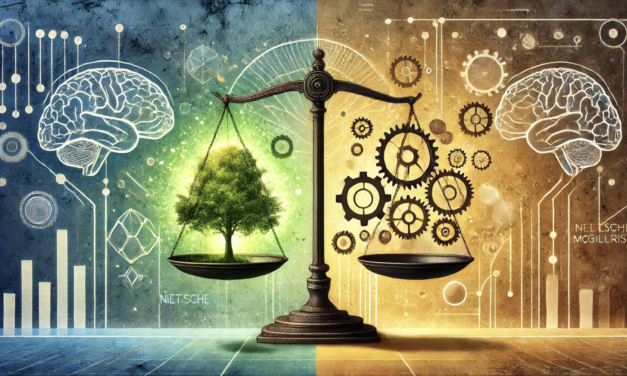Nature is One, But the Human Brain is Two-Fold:A New Lens for Leadership and Governance
Modern leadership and governance struggle because they fail to reflect humanity’s cognitive structure. Nature is unified, but the brain operates in two modes—relational and analytical. Effective leadership must integrate these hemispheric perspectives, balancing systemic wisdom with structured execution. This post explores a new governance model that mirrors nature’s balance.
Read More





